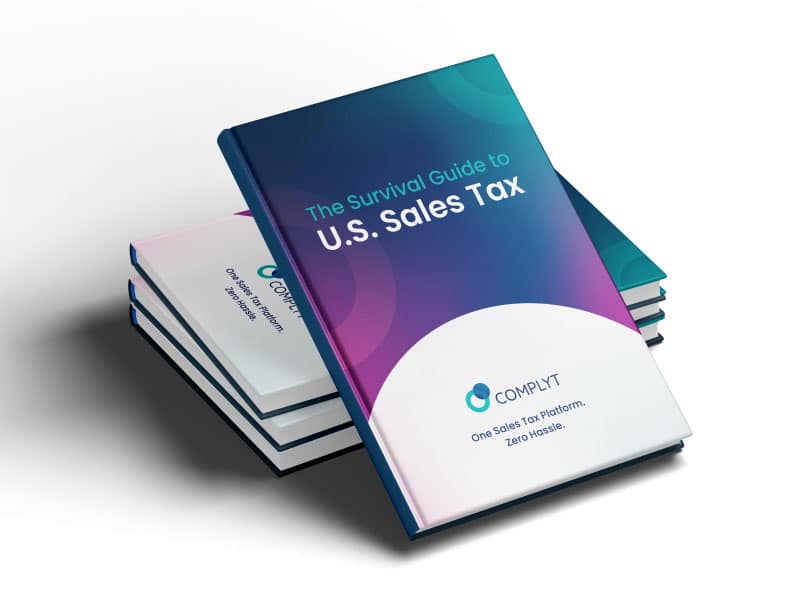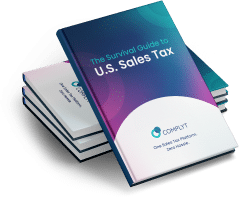What is the sales tax rate in Arizona?
The sales tax rate in Arizona is complex compared to other states due to its variable nature. The state’s base sales tax rate is 5.6%, but the total sales tax can range from 7.0% to 11.2% when city, county, and local taxes are included.
Arizona allows local jurisdictions to levy their own sales taxes. Therefore, the actual sales tax rate can vary throughout the state.
Are Transaction Privilege Tax (TPT) and Sales Tax similar in Arizona?
Arizona applies a tax called Transaction Privilege Tax (TPT). It operates like a sales tax for the privilege of conducting business in the State of Arizona. However there are some slight differences. For example, unlike true sales tax, Transaction Privilege Tax is levied on income derived by the seller, who is legally allowed to pass the economic expense of the tax on to the purchaser.
To expand, the Arizona State Revenue Department explains: “The seller is ultimately liable to Arizona for the tax. Transaction Privilege is imposed under sixteen separate business classifications. A.R.S. § 42-6103 provides that the state’s TPT provisions shall govern the imposition of county excise taxes. All sales subject to TPT are also subject to applicable county excise taxes.”
When should your business collect Sales Tax in Arizona?
Businesses must collect sales tax in Arizona when they have a ‘nexus’ within the state. Nexus implies a substantial presence or significant connection with the state. Arizona businesses or those with an office, employee, or warehouse in Arizona should be collecting sales tax.
Even out-of-state businesses may need to collect sales tax if they have an economic nexus in Arizona, which we’ll discuss in the following sections.
Arizona applies slightly different rules for businesses based in the state than for remote sellers or out-of-state businesses. In the remote sellers’ case, the state operates as a destination-based sales tax state.
Simply put, remote sellers are required to collect taxes based on the tax rate of the buyer’s location. In contrast, businesses in Arizona collect taxes based on the tax rate of the seller’s location.
Arizona Physical Sales Tax Nexus
A business has a physical nexus in Arizona if it has a physical presence, such as having an office, warehouse, or store in the state. Employees residing in the state or regularly conducting business, attending trade shows, or maintaining inventory in Arizona also establish a physical nexus.
Use Tax/TPT Nexus Checklist:
- Employees present in the state conducting business on behalf of the company
- Ownership or lease of real or personal property in Arizona
- Maintenance of an office or place of business in Arizona
- Delivery of merchandise into Arizona on vehicles owned or leased by the taxpayer
- Independent contractors or other non-employee representatives present in Arizona for the purpose of establishing and maintaining a market for the taxpayer
- Soliciting sales
- Making repairs
- Collecting delinquent accounts
- Delivering property sold to customers
- Installing products
- Conducting training for employees or representatives of the company or customers
- Resolving customer complaints
- Providing consulting services
- Soliciting, negotiation, or entering into franchising agreements
Arizona Economic Nexus Threshold: Revenue, Thresholds and Transactions
Economic nexus is determined based on your business’s sales revenue or transaction volume in Arizona, regardless of physical presence. As of 2023, you have economic nexus if your business made more than $100,000 in gross sales or conducted 200 transactions in Arizona in the previous or current calendar year. And that means you must register for an Arizona sales tax permit and collect sales tax.
Which services are taxable in Arizona?
Generally, Arizona imposes a sales tax on services if they are considered to be tangible personal property repair, replacement, or maintenance services. For example, car repair, furniture cleaning, and tangible goods warranties are taxable services.
However, not all services are subject to sales tax in Arizona. For example, professional services like legal or accounting are exempt.
Arizona Sales Tax on Products:
How to Calculate What Your Business Should be Charging
Calculating the sales tax amount in Arizona for products involves adding the state rate (5.6%) with the local city and county rates. For example, if you operate in a city with a 2.3% city tax and a 0.7% county tax, your total tax rate would be 8.6%. Therefore, for a product worth $100, the sales tax would be $8.60.
What Items or Products Are Exempt from Sales Tax in Arizona?
Several items are exempt from the sales tax in Arizona, including:
- Certain types of food for home consumption,
- Prescription drugs,
- Machinery or equipment used in research and development.
It’s essential to check the latest tax exemptions on the Arizona Department of Revenue website to ensure tax compliance and avoid penalties.
Arizona Online Sales Tax: Are SaaS and Digital Services Taxable?
In short, yes, SaaS and digital Services/products are taxable. But the ruling comes with much contention and confusion among business owners and court procedures. For now, Arizona applies sales tax to software purchases if the software is considered tangible personal property.
In their ruling (Lr 21-003), The Department of Revenue explains why data should be viewed as tangible property in the context of TPT. Ultimately, a business selling SaaS or digital services must collect sales tax (or TPT). For now.
Does my Business Need to Charge Sales Tax for SaaS in Arizona?
Yes, SaaS is taxable. Arizona imposes a Transaction Privilege Tax (TPT), which operates like a sales tax for most SaaS and digital services.
Interestingly, multiple businesses are challenging Arizona’s current ruling and classification reasoning (such as this Private Letter Ruling -NO. CV-23-0036-PR. Ct. App. No. 1 CA-TX-21-0009).
Furthermore, the state also identifies leased and subscription-based software as taxable.
To reiterate, you must collect tax on the sale if your business sells Software-as-a-Service.
How can a business get a sales tax permit in Arizona?
A sales tax permit is also referred to as a TPT license in Arizona. Businesses can apply for a sales tax permit in Arizona through the Arizona Department of Revenue’s AZTaxes website.
You must provide your business’s identification details, such as the EIN or SSN, business address, and details of your products or services. Your business requires a TPT license if your business performs certain business activities.
Collecting Sales Tax in Arizona as a Business
Businesses with nexus in Arizona should collect sales tax from their Arizona customers at the point of sale. The collected tax should be held in trust until it is due to the state.
Most businesses use accounting software or POS systems, of which many still need to have fully functional calculation engines for accurate sales tax filing.
Arizona Tax Return Due Dates Explained
Sales tax return due dates are typically on the 20th of the month following the reporting period. For example, sales tax collected in March should be paid by April 20th.
What is the required frequency for sales tax returns in Arizona?
The frequency of sales tax returns in Arizona depends on your sales volume. If your estimated tax liability is less than $500 per month, you can file quarterly. If it’s between $500 and $1,250, you can file monthly. If it’s over $1,250, you must file monthly and make semi-monthly payments.

